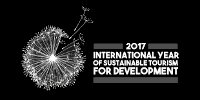Award-winning genuine Berber hospitality with superb rooms in a spectacular setting.
The Kasbah du Toubkal is a warm welcoming mountain refuge not a hotel: an important distinction and considerate cultural reflection. It’s not a 4 or 5 star hotel approach. Rather it allows guests to engage with the real, unpretentious extension of the hospitality that stems from the homes of the Berbers who run and manage the Kasbah.
The Kasbah du Toubkal is an award-winning unique mountain lodge just 60km from bustling Marrakech in the stunning peace of the Imlil valley of the High Atlas mountains.
For groups, it’s also a conference and retreat centre: a venue that inspires, provides peace in remote location, and the best of modern equipment.
It's a flagship development for sustainable tourism in a fragile mountain environment: A hospitality centre of excellence and business, to enhance the life and culture of the High Atlas Berber local community.
Working with the local community is integral to its ethos, meaning a unique feeling of equality and community offering an exceptional experience.
The Kasbah’s restoration, from the home of a feudal caïd (local baron) to hospitality haven by brothers Chris and Mike McHugo, was so sympathetic to its original design that ‘visitors regularly believe it to be hundreds of years old’, and the approach followed later enforced by the King of Morocco, as a regional standard.
5% of turnover is channelled to local initiatives, to preserve the environment and support the local population and specific not-for-profit projects in education, health and welfare
Be an Earth Changer:
Experience Kasbah du Toubkal
Traditional Berber hospitality mountain refuge in stunning surroundings to benefit local community, health, education and environment. Recommended stay minimum 3 nights.
Enquire here: We connect you directly to the destination so locals benefit more:
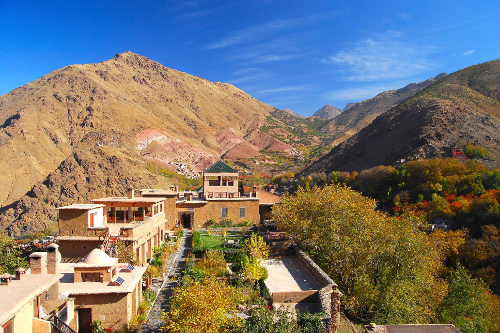
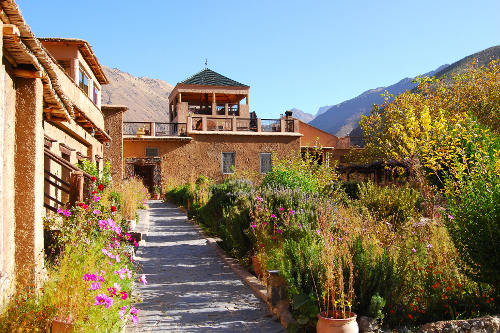
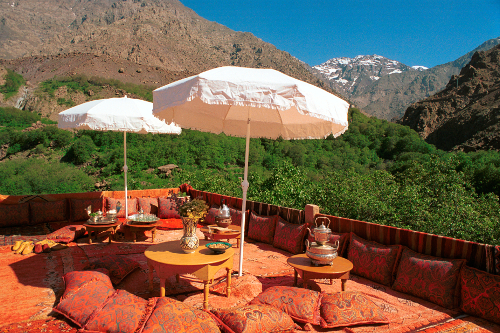
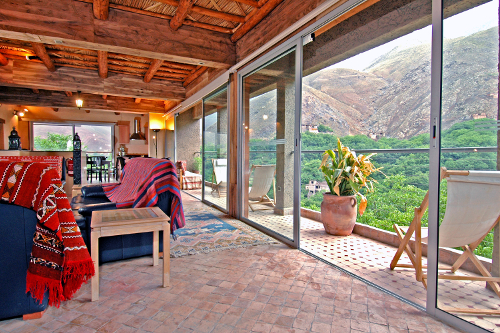

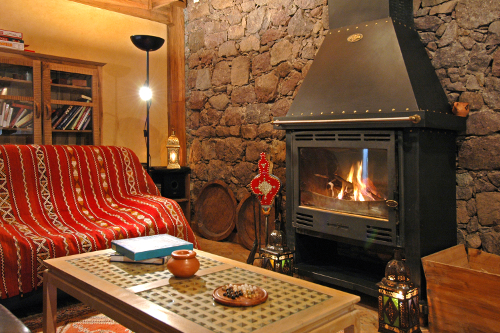

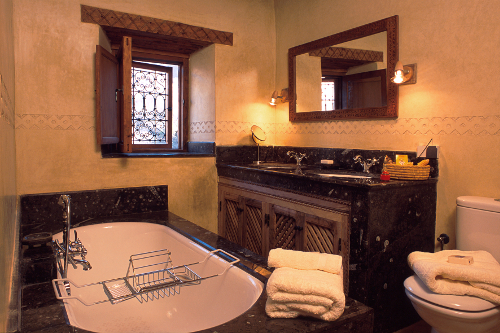
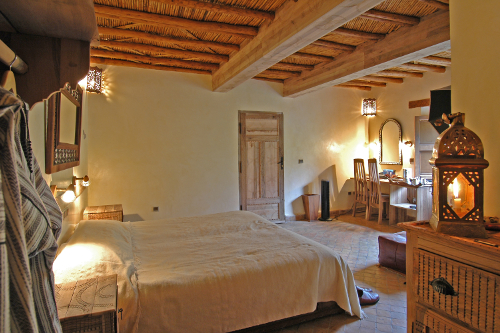
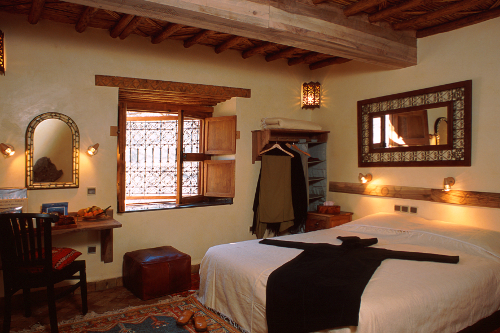
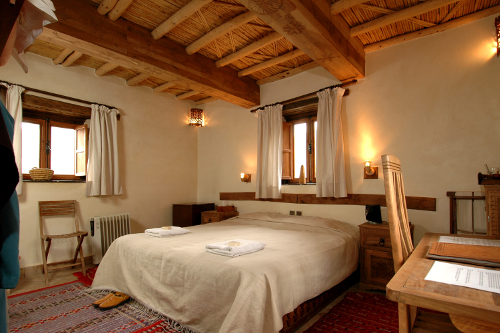

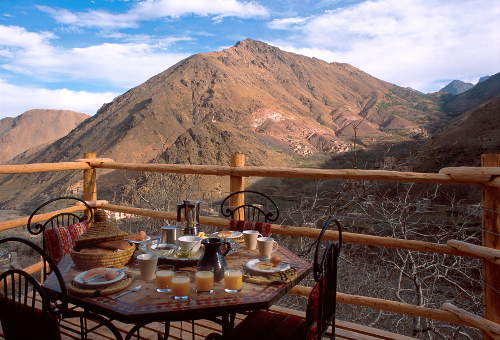
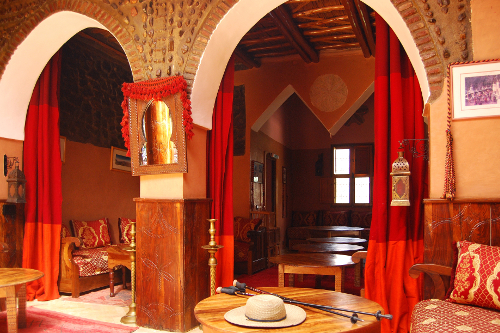
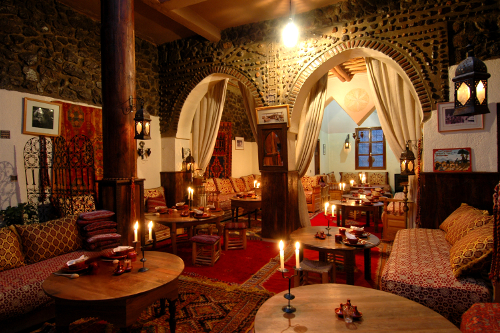

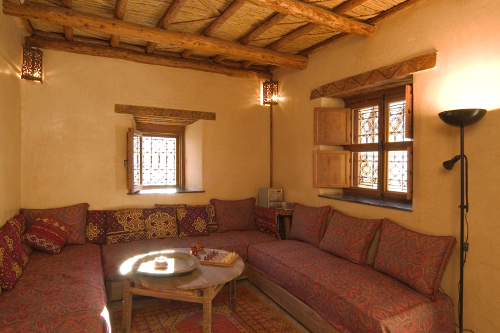


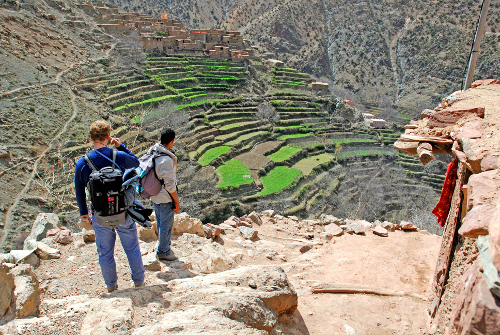
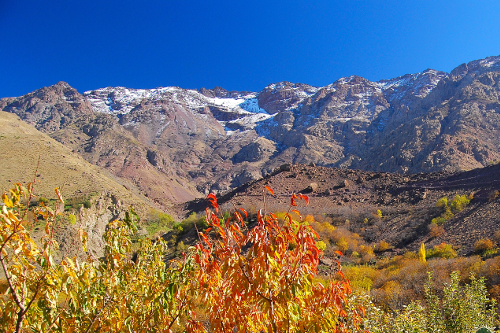
The Place
Great for adventure and nature breaks.
Just 60km from Marrakech in Toubkal National Park in the High Atlas Mountains.
Authentic, eco-friendly and cozy guest house with all modern comfort
Beautiful garden and large rooftop terraces offer unparalled panoramic views.
Ideal for all short or long breaks, couples, families, school groups or large parties.
NB: no disabled access or facilities; Alcohol may be consumed but is not sold.
+ Accommodation
Fully refurbished in genuine Berber style, offering an authentic, homely feel.
- 14 comfortable en-suite rooms: 3 can be used as a private self-contained house.
- 3 family rooms
- Small and large traditional Berber salons
Standard rooms are simple and comfortable with
- Double bed or twin beds
- Radio, CD player
- Desk
- Room service
- Mini bar (non alcoholic drinks)
- Tea and coffee making facilities
- Board games
- Books
- En suite bathroom with shower
- Hairdryer
- Carved walnut furniture and fittings by local craftsmen.
Superior Rooms (2): As above plus offer more space.
- En suite with bath.
- 1 can be interconnected to the Apartment Suite.
- 1 can be connected to a Deluxe Room.
Deluxe Rooms (5):
- As above (en suite with bath) spacious with authentic décor, locally crafted furnishing and fantastic mountain views.
- 1 can be interconnected to a Superior Room.
- Most with terrace or balcony.
Garden House - Suites
- 3 bedroom house with separate entrance, stunning lounge with open fire and a 12 metre glass wall looking up to the peak of Jbel Toubkal. Can be booked and configured separately or together:
Superior En Suite:
- Double or twin with en-suite bathroom with shower, bidet, wash basin and WC
- Tranquil outside area looking east
Junior Suite: On 2 floors
- Top floor: private lounge with Berber couches, small study area and outside terrace
- Lower floor: spacious deluxe double or twin en-suite room with bath and shower.
- All rooms have carved walnut furniture and fittings by local craftsmen
- Wifi. The Junior Suite can be interconnected to the:
Apartment Suite: Spacious garden apartment sleeps 2 adults with plenty of privacy and modern comfort on two levels with the bedroom below an open plan lounge.
- Deluxe double or twin bedroom with ensuite: rolltop bath with shower, twin wash basins, bidet, WC
- Large lounge with large glass wall opening to 10m long balcony running its length with unparalleled views of the High Atlas Mountains.
- Beautifully appointed with fully fitted kitchen.
- Private sun/breakfast terrace and access to shared garden
For families and large parties, this unique apartment can be turned into a 2 or 3 bedroom Garden House.
Amenities as above plus:
- Fan
- Fireplace
- Washing machine
- Microwave oven
Berber Salons:
- Not hotel rooms but rooms based on traditional local custom.
- A downstairs area is set out like a traditional room serving as a seating area during the day with couches which can be slept on at night.
- Upstairs sleeping gallery with mattresses to add flexibility.
- Area of roof terrace reserved for each room with carpets to sleep under the stars: sleeping sheet, sleeping bag and mat provided.
- Shared bathroom facilities.
- Carved walnut furniture.
- Small Berber salon offers 1 room for 3: 3 people per room.
- Large Berber salon offers 2 rooms for 4: 2 people per room.
+ Facilities
- Underfloor heating ideal for winter stays
- Restaurant
- Non-licensed bar: Out of respect for the Islamic faith and Muslim hosts, no alcohol is sold but guests can bring alcoholic drinks with them
- Triple filtered water fountain to refill reuseable water canteen the Kasbah provides, to minimise plastic waste.
- Wi-Fi access
- Hammam
- Luggage room
- Pets welcome
- Meeting facilities for team building events or seminars.
+ Eating & drinking
Breakfast: an array of freshly prepared local specialties. Includes freshly squeezed orange juice, home-baked breads, home-made yogurts, Berber Moroccan pancakes, fresh fruit, cereals and nuts, dried fruit and a selection of hot drinks.
Lunch (€15) and Dinner (€20):
- Moroccan-style cuisine: Each day set menus are served for all residents of the Kasbah. varied according to season.
- Vegetarians catered for. Please inform when booking, and for other special requirements or preferences.
- All meals are prepared by local chefs with fresh local ingredients and traditional cooking methods.
The charming dining room is typically traditional, complete with low tables, candle lighting, sofas, stools and an array of cushions.
In warm weather meals are served on the stunning rooftop terrace with amazing panoramic views.
Alcohol The Kasbah is not licensed to sell alcohol in respect of the local Islamic traditions. If you wish to drink alcoholic beverages during your meals or at the bar you are welcome to bring them with you. From an environmental perspective the Kasbah also asks you take the empties away with you—they will at least be lighter!
+ Activities
- Walks with several levels of difficulties are available suited for beginners and more advanced trekkers.
- Complementary residents walks take place each morning and afternoon for those who do not wish to walk for a half day or full day.
- Jbel Toubkal 4,167m - North Africa's highest mountain – ideal starting point for ascent, with base camp a day’s walk away, so the summit is achievable with just one night away; the Kasbah can take care of all logistics. Day excursions on camel back also possible.
Trip packages are available: Combine with Marrakech, Essaouira and multi day treks in the Azzaden Valley – available on request.
+ Wildlife
As a protected area, The Toubkal National Park, with North Africa’s highest peak, houses Barbary sheep, foxes, owls, and more life than you might imagine!
+ Weather
The Atlas Mountains have a typical mountain climate.
Spring or Autumn can be the best time to visit: From April to October the weather is undoubtedly at its best.
In Winter, from November until March, day time temperatures range from around 10°C up to 20°C, with wonderfully crisp, dry and sunny days ideal for trekking. Night-time temperatures can get considerably cooler, dipping to 5°C in Imlil.
In Summer, the typical mountain altitude climate offers a sunny but cooler break from the hot city of Marrakesh with average temperatures of approximately 25°C. However, temperature in the valleys has an average daytime low temperature of 30°C ensuring that shade and sun protection are vital when visiting. There is the risk of thunderstorms and rains during the afternoons in however rain is only likely to fall for two or three days during any given month.
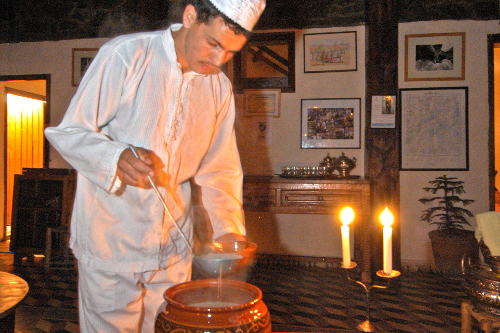
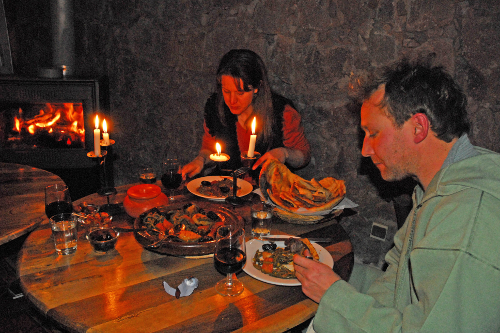
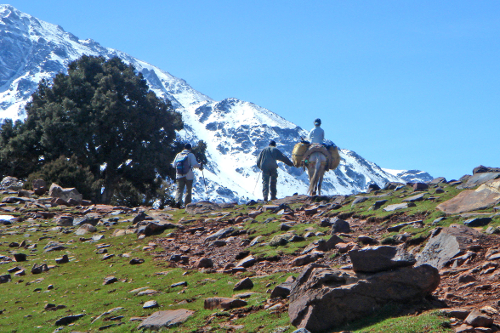
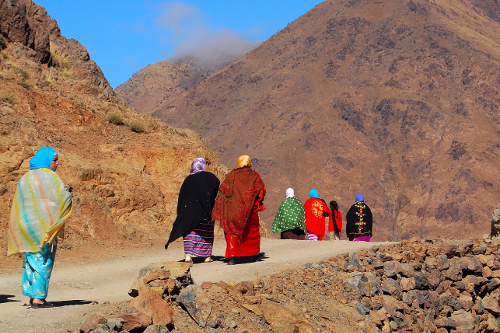
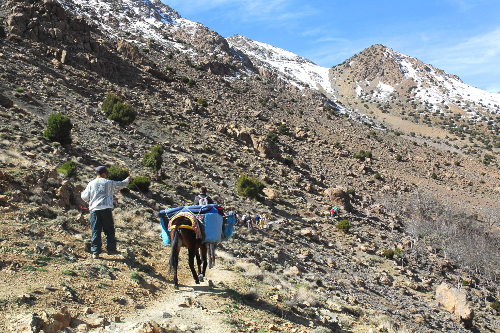
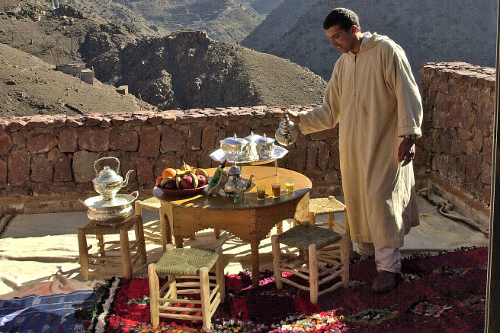
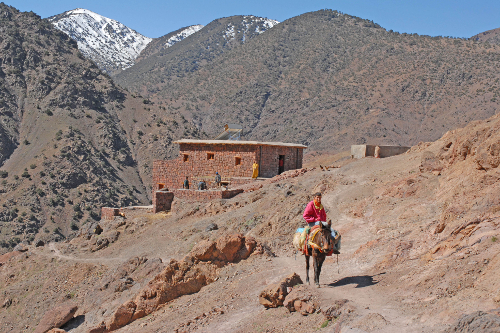
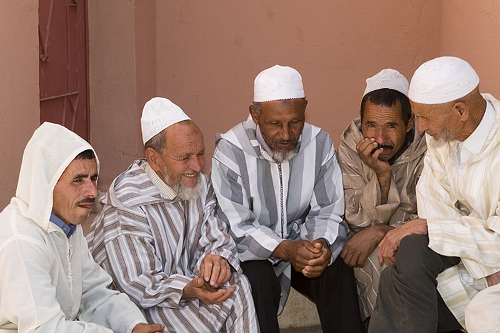
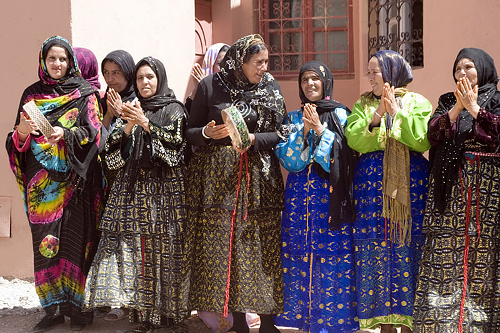
The People
Warm friendly hospitality with true Berber community.
Support a truly unique community partnership.
Built and staffed by the local population.
Responsible and respectful behaviour
Each stay contributes to the community and its social services
The Kasbah du Toubkal is an extraordinary venture, the product of an imaginative Berber and European partnership in a unique setting.
Hollywood movie director Martin Scorsese found it an ideal location and would-be Tibetan monastery for Kundun, a film about the Dalai Lama.
+ The Staff
The Kasbah is fully staffed by members of the local population.
The genuine warm friendly and knowledgeable local team make every effort to ensure your stay is as enjoyable as possible.
+ Community
The Kasbah has been run in a unique partnership with the local Berber community since the beginning throughout its development and management today. So a stay is a unique chance to learn about the Berber culture and simple lifestyles of these proud mountain people who have changed little over the centuries.
“Such a project would not be possible without close and deep local ties… by our correct behaviour and respect for the local population, hopefully they have come to respect us and also accept some of our differences.” – Chris McHugo
The village of Imlil comprises some five separate settlement areas with a population of just 1,500. Its location is at the end of the main road system, beyond which narrow footpaths and precipitous mule tracks are the only channels of communications with the outside world.
The guest house was renovated using traditional building techniques, local materials and craftsmen, with everything carried in by hand or mule. Power tools could not be used, as electricity didn't arrive in the remote region until 1997. Even an industrial washing machine was brought by hand: it took 3 teams of 16 (48) men and a special constructed sling.
Imlil Valley’s population are mostly subsistence farmers, whose own fields and walnut, cherry and apple orchards flourish below the Kasbah.
Moroccan families often live near each other and usually in the same house, which can mean upwards of ten people under one roof where only one or two are earning money. A single son may bear the expenses of his mother, sisters, younger brothers, his wife and his own children. In the valley it’s still quite rare for women to work outside of the home, and in fact it can be seen as shameful for them to do so, although this is slowly changing with education opportunities. This is something to bear in mind when bartering:
“The average income for a guide or muleteer can range anywhere between 1500 - 2500 MAD per month. That’s around 150 - 250 euro per month to support ten people”
For this reason, when Hollywood movie director Martin Scorsese found the Kasbah an ideal location and would-be Tibetan monastery for Kundun, a film about the Dalai Lama, it led to the formation of the Village Association to receive the fee negotiated for the film. In Berber villages, no one speaks on behalf of another, but collective decision making is nothing new. With an outside source of funding, and no previous system, an umbrella structure was required to share the benefits of the filming equitably between villages and individuals.
Now in the village there are several shops selling souvenirs, groceries to locals, and a number of basic cafés offering local food. In the evenings, however, the village shuts up early: there is little or no alternative to eating an evening meal at the Kasbah.
+ Suppliers
Products and services are made and bought as locally as possible. Reliance on animal power means working animals and their conditions are included. The Kasbah also works with “SPANA” a British charity for the Protection of Animals abroad to ensure they work with only responsible mule handlers, for the well-being and health of mules.
+ Culture & Behaviour
Please bear in mind Morocco is still a conservative country. Islamic religion governs 99% of the population and 5 times a day you will hear the Muezzin (call to prayer) ring out from the speakers of mosques near and far, beckoning the loyal listeners to kneel in Prayer. Please be patient if you need to wait for them to finish worship, such as in a shop, and especially respectful during the month of Ramadan.
Hand-holding in pubic can cause offense. For same sex couples, whilst there may be a degree of tolerance if discrete, please be aware of the legal and cultural position in Morocco.
Dress Even though only 40 miles from less conservative Marrakech, in Imlil it’s shocking for local people to see shorts, skirts above the knee, and sleeveless/low cut tops (both genders).
- Wide-leg loose pants and lightweight cotton shirts leave you feeling fresh while being modest and respectful.
- While a headscarf is not necessary, a hat is recommended for saving you from the brutal North African sun.
Photos It’s disrespectful to take a photo of locals without asking — especially women. If you’re with a guide you can have them ask on your behalf — but ensure that they do, and be prepared to accept being declined.
Language: Berber, vastly different spoken and written even from the Arabic national language.
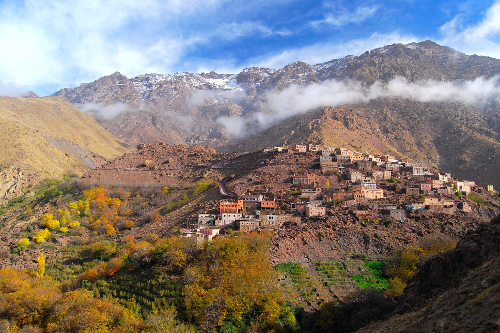
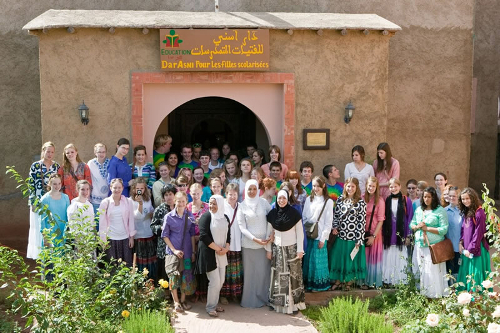
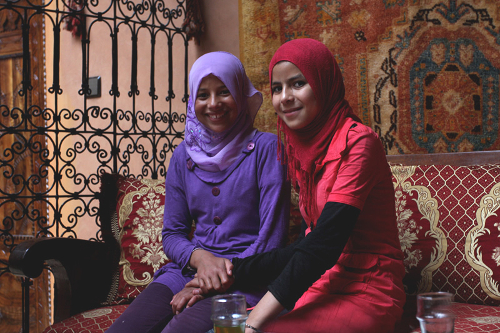
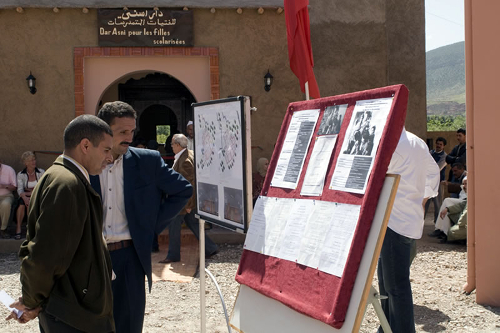
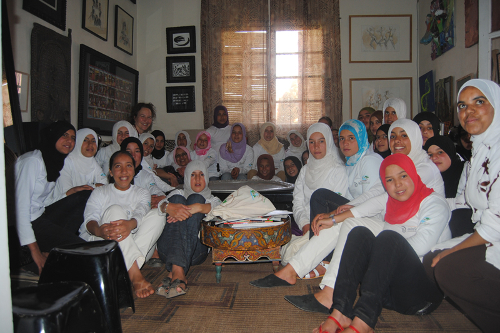
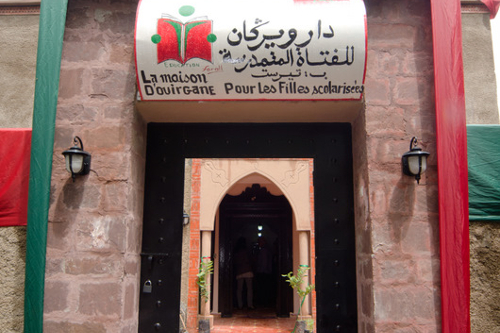
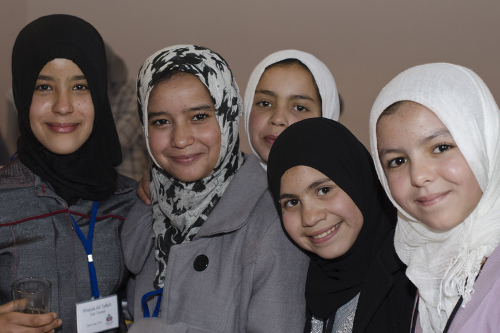
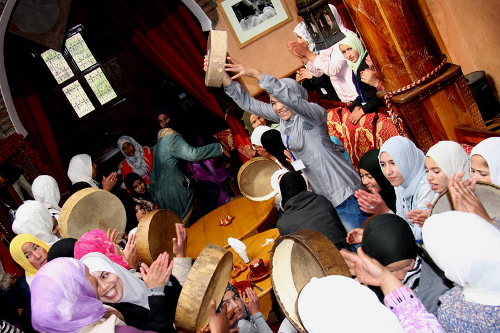
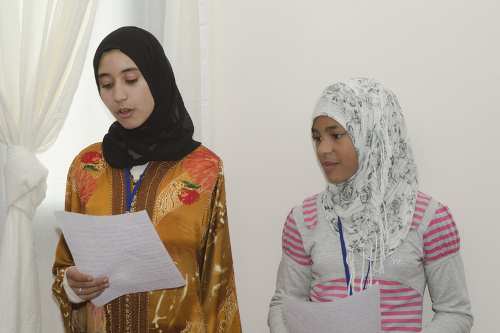
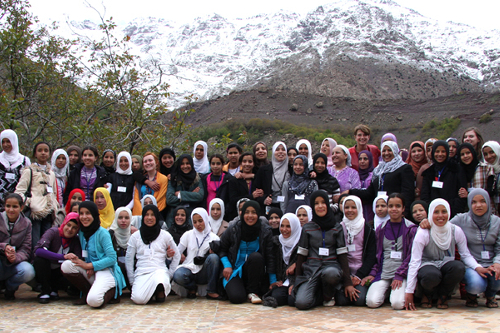
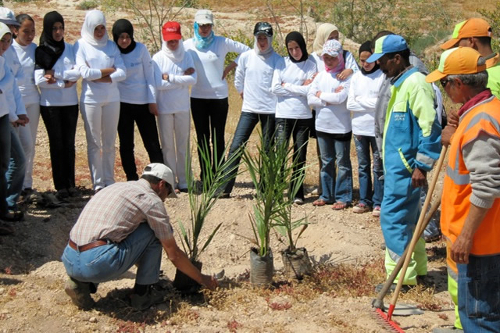
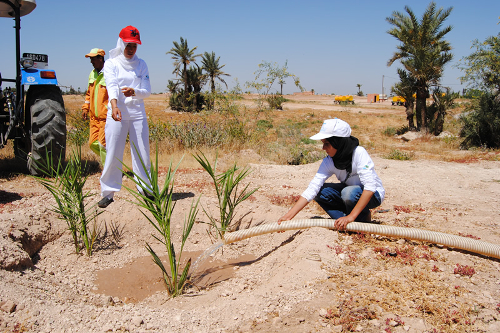
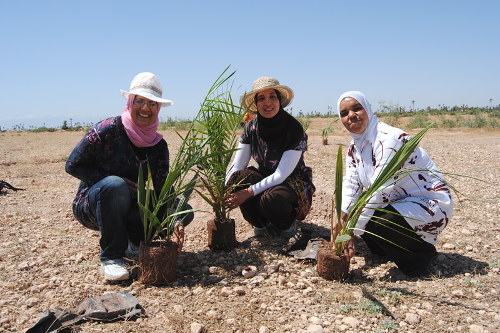
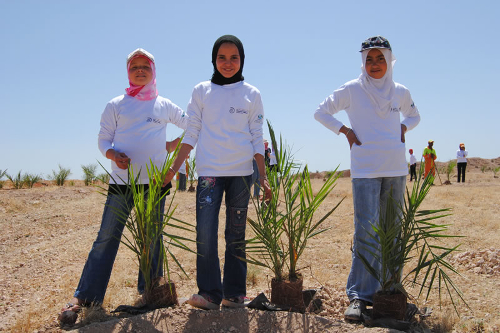
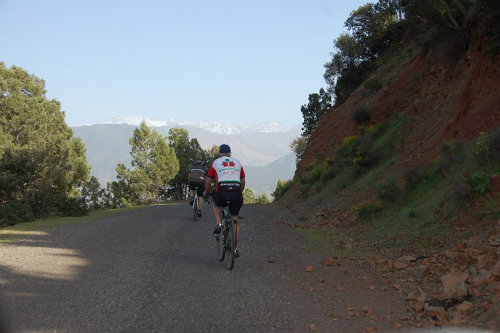
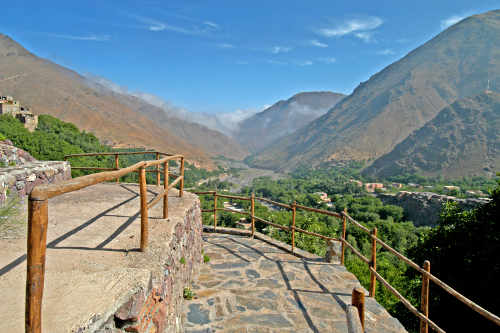
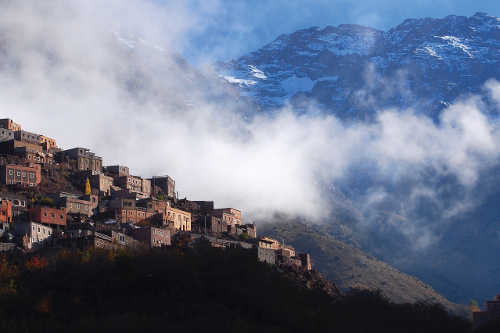
The Purpose
The Kasbah du Toubkal’s quest is to preserve the environment and support the health, wealth and well-being of the local village populations.
There is a shared belief that the beauty of the Toubkal National Park should be accessible to all who respect it.
A 5% levy is added to final invoices to support the Education For All charity and Village Association (Association Des Basins d'Imlil, which covers the surrounding valleys) organisations facilitated by the Kasbah. The Association’s aim is to co-ordinate development and projects in the region on a purely apolitical basis.
+ Environmental Sustainability
Waste The Kasbah has worked significantly with the local community on waste. Historically, there was not the understanding of waste’s effect on the environment, air, water, and so food and health, so change has been a large local education initiative.
There are no municipal services able to collect rubbish let alone recycle, which inevitably leads to rubbish dumped in backyards. Additionally, tourists coming for day trips leave rubbish on the mountains, which gets blown into grazing lands, water sources and where children play. Removal by burning means plastic fumes.
The Kasbah itself has a no plastic water bottle policy, and through their 5% levy for The Village Association, they have
- Built an incinerator and instigated a much-needed rubbish disposal system, since self-sustaining through contributions by village businesses.
- Developed the “Mountain Propre” clean-up operation including an annual rubbish collection from Jbel Toubkal, composting and recycling as much as possible;
- Since 2009, supported a rubbish collection truck to replace mules.
In this valley,
“It wasn’t complicated, but it was ambitious” – Mike McHugo
If at all possible, please take your trash back with you to remove the pressure locally.
+ Social Sustainability
Health In addition to creating waste and water services, the first project of The Village Association was to provide an ambulance and driver for the region.
A primary motivation was to reduce the number deaths resulting from a lack of dedicated transport to Asni and Marrakech, especially deaths during childbirth. Discover Ltd agreed to underwrite the purchase of a vehicle from England, which arrived in Imlil in December 1999. The original ambulance is now in a more remote village and The Village Assocation has a brand new ambulance donated by a French Charity.
Education After more than 35 years of bringing school groups to Morocco, it’s no surprise that supporting local education is also a priority.
The Village Association has assisted in the construction of a school for 80 children in an outlying valley, to support those whose distance would make education inaccessible.
Very few girls from rural communities in Morocco attend school past primary 11 years old: they are not available locally, further afield is cost prohibitive for most families, and it has not been acceptable culturally for girls to stay away from home, especially in Dickensian state boarding houses. Therefore, they leave education and the illiteracy rate is high in rural areas.
The Kasbah’s 5% levy supports Education for All: a charity the Kasbah helped create that enables young girls from local villages to pursue their education by providing scholarships and high quality boarding houses. Everything is provided for free: 3 nutritious meals a day, hot showers, cosy beds, access to computers, study support via an international volunteer programme and dedicated, local housemothers. Education for All thus gives disadvantaged girls from 12-18 the opportunity to not just complete secondary and high school and attend university, but really settle in and thrive in their studies, gaining valuable life skills and experiences too, such as visiting the coast and tree planting. On average, 90% girls pass and over 150 EFA girls have enrolled at university since 2013!
Girls are now able to pursue dreams and becoming doctors, teachers, architects… however, only 20% of applicants can be supported currently due to a limit of 5 boarding houses available.
Community Services: The Village Association has also
- Built a hammam—a community steam bath central to life in Moroccan communities – and the region’s first (2004).
- Built a communal meeting place and office.
- Developed a trout farm and café.
- Reinforced the flood protection in the village.
- Created a hardship fund.
- Supported modern apprenticeships and craft training at the Imlil School.
- Planted trees in local villages.
+ Animal Welfare
Mules Working with SPANA for the Protection of Animals abroad and responsible mule handling, mules should not be tired, overloaded (more than 75kg baggage, or half that for over 20 minutes), thirsty, or have a traditional Berber iron bit, which causes pain, destroys teeth and affects the mule’s ability to chew, hence eat, leading to illness and even starvation. Muleteers are also need to be paid a decent living wage to look after their mules responsibly, championed by the Kasbah in an industry-leading move, which also includes micro-chipping the mules for more individual tracking of life story data and care.
+ Wildlife
Bearded Vulture project An impressive but rare bird of prey on the IUCN Red List, disappearing from North Africa and Morocco, the Kasbah has supported this Toubkal conservation project throughout the High Atlas.
“Educate a boy and you educate the man; educate a girl and you educate a family, a community, a nation.”
Enquire here and we connect you directly to the destination so locals benefit more:
Options & Rates
Getting There: Just 90 minutes from Marrakech.
Transfer: The easiest way to reach the Kasbah du Toubkal is by the lodge’s private transfer from Marrakech with a driver who knows the route: €85 one way with up to 4 passengers a time.
On arrival at Imlil, check-in at the lodge reception, and porters, with mules for luggage, will escort you for the 15 minute walk to the Kasbah.
Check-in / Check-out: Standard check-in is 2pm, check-out 11am, flexible depending on availability.
Rates: Please click here for rooms, descriptions and prices
Children up to 5: free of charge in room if sleeping in parent’s bed, free meals and trekking.
Children 5 to 15 years: 50% off meals and trekking.
Included:
Bed & Breakfast.
Tea and Coffee, on request.
Fresh sheets, towels, sleeping bag/sheet loan (for sleeping on roof terrace), use of hammam.
Travel cot if required.
Excluded:
Additional meals, all including soft drinks, tea and coffee:
Lunch €15 / Dinner €20 / Full Board €35Non-resident meals served for an additional supplement of €15 to lunch or dinner price.
Optional Extras:
Private transfers from Marrakech: €85 one way with 3 or 4 passengers a time.
Riad or hotel accommodation in Marrakech: Please enquire
Half day trekking with guide (morning or afternoon) – minimum 2 people €27 per resident
Extra trekkers (half-day) €11
Mule (half-day) €16Full day supported trekking including picnic – minimum 2 people:
Includes: guide and muleteer/cook €75 per person
Extra trekkers (Full day, including lunch) €50Overnight trekking including ascent of Mount Toubkal:
Overnight stay (including prepared meals and accommodation) €55 per person
Ascent of Toubkal (minimum 2 people) €225 per person
Extra trekkers (Ascent of Toubkal) € 140
Includes: Guide, cook, mules, muleteers, overnight accommodation, food, drinks, etc.Trekking packages including stays at Azzaden Trekking Lodge, the Kasbah’s lodge in a remote neighbouring valley: See more info on prices link above.
Tailor-made tours around Morocco: POA
Awards & Accreditations
National Geographic Unique Lodges of the World
2014-18 Trip Advisor Certificate of Excellence - Recognising 5 Consecutive Years of Consistently High Ratings from Travellers
2012 Association of Independent Tour Operators - 5* Sustainable Tourism Award
2012 The Green Key Morocco – awarded by the Mohammed VI Foundation for the Protection of the Environment.
2011 Finalist Responsible Tourism Awards - Highly Commended in Best Accommodation for the Environment category.
2011 Condé Nast Johansens 2012 Awards for Excellence - Winner Knight Frank Award for outstanding excellence and innovation.
2010 Finalist Responsible Tourism Awards - Highly Commended - Mountain Environment Category.
2009 Eco Hotels of the World - 4 Green Stars rating.
2008 National Geographic ADVENTURE magazine - Top 50 Eco-Lodges.
2008 Moroccan Sustainable Tourism Award – Winners
2004 Responsible Tourism Awards – Winner, Best in a Mountain Environment.
2002 British Airways Tourism for Tomorrow Awards – Highly Commended.
Enquire here so we can connect you directly to the destination - so locals benefit more
Terms & Conditions:
Minimum 2 night bookings although single night bookings taken where there are single spaces to fill.
All invoices incur a 5% charge for the “Association des Bassins d’Imlil” local Village Association and Education For All as detailed in ‘purpose’.
Cancellation or No-Show policy:
Cancellation at any time up to 48 hours before arrival date: cancellation charge of 50% of invoice value or 1 day’s Bed & Breakfast whichever is the greater from the point of making a confirmed booking.
No Shows and cancellations 48 hours or less before arrival date: 100% of invoice value from the point of making a confirmed booking.
All cancellations are subject to Management’s discretion.
